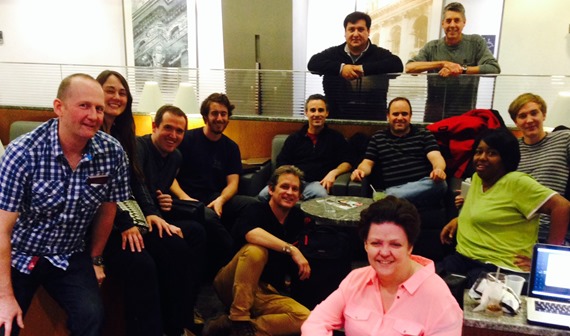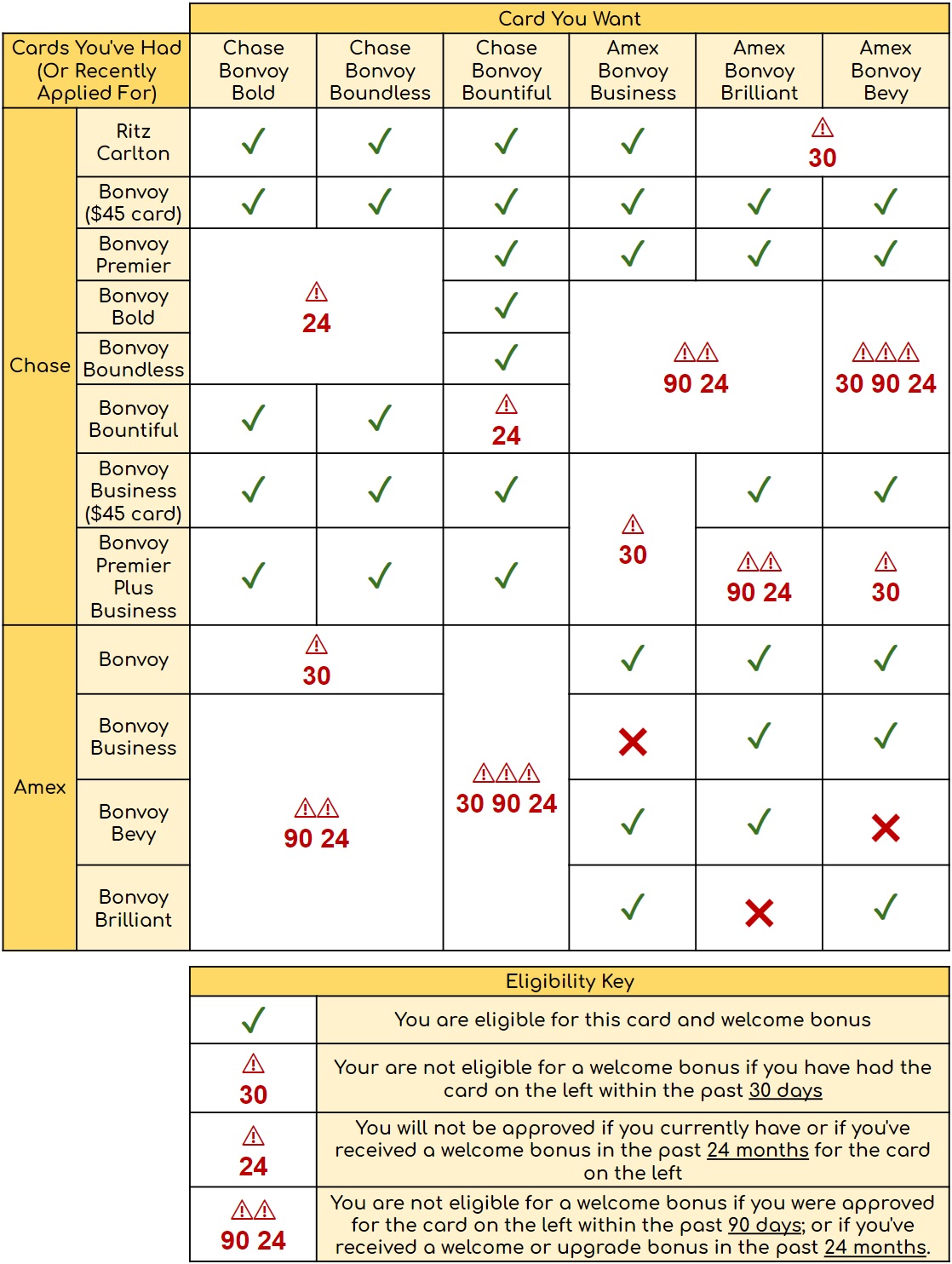NOTICE: This post references card features that have changed, expired, or are not currently available
Background: Until recently, there was a one time opportunity to get top tier American Airlines AAdvantage elite status (Executive Platinum) by enrolling in and completing the US Airways Preferred Status Trial. For fun, I decided to go for it and I know that many readers did too. All we had to do was fly 30,000 miles on US Airways or American Airlines flights in 90 days. Follow along through this series of posts, or on Twitter search for hashtag #30Ktonowhere. For additional background, please see:The last great mileage run.
Last week I completed my planned mileage runs. Early Wednesday morning, I flew from Detroit to Las Vegas via Dallas on American Airlines. Within half an hour of landing in Vegas, I boarded a US Airways flight to Philadelphia (along with many other mileage runners). In Philadelphia, we spent an hour or so in the Admiral’s Club before flying back to Vegas. The next morning some of us flew to Philadelphia and back, again. Then, on the third day I returned to Detroit on US Airways, via Phoenix.
The above itinerary may sound like torture, but it was actually fun. When I bought into the US Airways Preferred Trial (no longer available), I paid extra for temporary Platinum status. That turned out to be a good move. I was upgraded on nearly every US Airways flight. That made a big difference in the comfort-level of continuous flying.
A typical day of mileage running went like this:
- Arrive at the Las Vegas airport around 8:30 or 9:00 and head directly to the Centurion Lounge (I get access thanks to having a Platinum card. I always tend to have a Platinum card even if it’s a different Platinum card each year)
- Eat breakfast in the lounge (they have very good food there) and meet up with other frequent flyers
- Board the 11:10 am flight to Philly at around 10:40 am.
- Eat a big lunch on the flight (US Airways’ food is barely tolerable, but they give you a ton of it in first class)
- Arrive in Philadelphia and spend an hour or so in the Admiral’s Club lounge, along with other frequent flyers (I get access via either my Citi Prestige card, or my Citi AA Executive card — which I’ll cancel when the annual fee comes due).
- Board the 8:20 pm flight to Vegas at around 8:00 pm.
- Eat a big dinner on the flight
- Arrive back in Vegas and get to my hotel at around midnight
The worst part of the itinerary (besides the US Airways beef-like dish which I made the mistake of ordering once) was the constant sitting. I made a point in the Admiral’s Club lounge to never sit down, except for pictures (I’m the guy sitting down):

My 4 mile buffer
I reported before that I had booked 30,004 flying miles (after accounting for 500 mile minimums on shorter segments). That didn’t leave much room for error if things went wrong. Luckily, things went right. I finished the last of my 30,004 miles last Friday. By Monday morning, my US Airways account reflected my new status:

You can see that I’ve earned 28004 PQMs (Preferred Qualifying miles) in 2015. I had already earned exactly 2,000 PQMs through flying in December (not shown here), so the total for my Trial period comes to exactly 30,004 miles.
Total cost
I took a business trip in December which earned 2,000 PQMs and a personal trip in January which earned 2180 PQMs. I won’t count either trip in the costs below since I would have taken those trips anyway. It cost me no more to fly US Airways for these trips than it would have to take any other flights. In fact, I actually saved quite a bit on my personal trip since I used my US Airways companion pass to put my wife and son on the same flights for only $99 + fees each. If not for the Trial, I probably would have otherwise stuck to non-stop flights on other carriers and would have paid substantially more.
I’m also not going to count transportation to or from airports or food/dining in the costs below. Most of my airport rides were with Uber where I used credits from referrals (found here). Taxis in Vegas were cheap and were often shared with others. Food costs were almost non existent thanks to food served in first class and in lounges. I probably actually saved quite a bit on food over what I would have spent at home.
As to hotels, my trips to Vegas required two two-night stays. I used an Orbitz promotion (no longer available) for $100 off two night stays (details here) to book hotels at very low rates, even after resort fees were considered. I also needed a one night stay in San Diego. There I splurged a bit for a stay at the Hyatt Regency Mission Bay Spa and Resort where I paid a total of $166.93 after all fees and discounts.
Here’s the breakdown of costs:
- DTW to LAS, via DFW: 9,015 ThankYou points
- Hotel in Los Vegas for two nights: $63.93
- LAS to PHL to LAS: $74.60
- LAS to DTW, via PHX: 8,927 ThankYou Points
- DTW to SAN via PHX (round trip): 20,000 US Bank FlexPerks
- Hotel in San Diego for one night: $166.93
- DTW to LAS, via DFW: 9,015 ThankYou points
- Hotel in Los Vegas for two nights: Cost: $81.78
- LAS to PHL to LAS: $74.60
- LAS to PHL to LAS: $74.60
- LAS to DTW, via PHX: 8,927 ThankYou Points
Sub-Totals (not including personal and business trips):
- PQMs: 25,824
- Redeemable Miles earned: 45,190 (includes 75% bonus for Platinum status)
- Out of pocket cost for flights: $223.80
- Out of pocket cost for hotels: $312.64
- ThankYou points paid: 35,884 for $574.14 worth of flights
- FlexPerks points paid: 20,000 points for $383.20 round-trip flight
Totals (using cash value of flights rather than points paid):
- Flights: $1181.14
- Flights + Hotels: $1493.78
- Cost Per PQM: $1493.78 / 25,824 = 5.8 cents per PQM
- Including $600 fee for Trial: $2093.78 / 25,824 = 8.1 cents per PQM
Another way to look at this is that I converted approximately 55,000 credit card points (ThankYou points + FlexPerks) into 45,000 US Airways miles, which is not a terrible conversion rate at all. And, I paid a total of $536.44 out of pocket. If you include the original cost of the US Airways Preferred Trial ($600), though, the out of pocket costs rise dramatically to $1,136.44.
What’s next?
Once American Airlines and US Airways merge their frequent flyer programs in the second quarter, my US Airways miles will merge with my AA miles and I’ll gain top tier elite status with AA. Through both programs I should get international upgrade certificates that will let me buy economy fares and upgrade to business class. Will I take full advantage of these perks? Will I switch my routine domestic flying from Delta to AA/US? Will the Joker get away with his nefarious plans? Tune in next week…
| #30Ktonowhere Tweets |
|---|
| Chase's 5/24 Rule: With most Chase credit cards, Chase will not approve your application if you have opened 5 or more cards with any bank in the past 24 months. To determine your 5/24 status, see: 3 Easy Ways to Count Your 5/24 Status. The easiest option is to track all of your cards for free with Travel Freely. |
| Chase 5/24 semantics ("Subject to" vs. "Count towards"): Most Chase cards are subject to the 5/24 rule. That means the rule is enforced in making approval decisions. In other words, you probably won't get approved if your credit report shows that you opened 5 or more cards in the past 24 months. Meanwhile, most business cards (such as those from Chase, Amex, Barclaycard, BOA, Citi, US Bank, and Wells Fargo) are not reported on your personal credit report. These cards do not count towards 5/24. Example: Chase Ink Business Preferred is subject to 5/24, so you likely won't get approved if over 5/24. If you do get approved, it won't count towards 5/24 since it won't appear as an account on your credit report. |
| Amex credit and charge card limits: If you apply for a new Amex credit card, you may get turned down if you already have 5 or more Amex credit cards; or 10 or more Pay Over Time (AKA charge) cards. Both personal and business cards are counted together towards these limits. Authorized user cards are not counted. See also: Which Amex Cards are Charge Cards vs. Credit Cards? |
| Applying for Business Credit Cards Yes, you have a business: In order to sign up for a business credit card, you must have a business. That said, it's common for people to have businesses without realizing it. If you sell items at a yard sale, or on eBay, for example, then you have a business. Similar examples include: consulting, writing (e.g. blog authorship, planning your first novel, etc.), handyman services, owning rental property, renting on airbnb, driving for Uber or Lyft, etc. In any of these cases, your business is considered a Sole Proprietorship unless you form a corporation of some sort. When you apply for a business credit card as a sole proprietor, you can use your own name as your business name, use your own address and phone as the business' address and phone, and your social security number as the business' Tax ID / EIN. Alternatively, you can get a proper Tax ID / EIN from the IRS for free, in about a minute, through this website. Is it OK to use business cards for personal expenses? Anecdotally, almost everyone I know uses business cards for personal expenses. That said, the terms in most business card applications state that you should use the card only for business use. Also, some consumer credit card protections do not apply to business cards. My advice: don't use the card for personal expenses if you're not comfortable doing so. |
| Manufacturing Spend Caution: Many, many things can go wrong when manufacturing spend. If you suddenly increase credit card spend, your accounts may get shut down. If you cycle your balance often (e.g. spend to your limit, pay the bill, repeat) within a billing cycle, your accounts may get shut down. If you repeatedly pay your credit card bill from an anonymous bill payment source, your accounts may get shut down. If you buy lots of gift cards you may lose money due to gift card fraud, theft, loss, or simply mishandling those gift cards (e.g. maybe you thought you already used a gift card and tossed it into your “used” bin). If you rely on only one method to liquidate gift cards, you may be stuck unable to pay your credit card bill when that method gets shut down. In other words, don’t try this at home unless you know what you’re doing, and you understand and accept the risks.. |
| Chase Ultimate Rewards points are super valuable and super flexible. At the most basic level, points can be redeemed for cash or merchandise, but you'll only get one cent per point value that way. A better option is to use points for travel. When points are used to book travel through the Ultimate Rewards portal, points are worth 1.25 cents each with premium cards (Sapphire Preferred or Ink Business Preferred, for example) or 1.5 cents each with the ultra-premium Sapphire Reserve card. Another great option is to transfer points from a premium or ultra-premium card to an airline or hotel program when high value awards are available (see this post for details). If your points are tied to a no-fee "cash back" Ultimate Rewards card, then first move those points to a premium or ultra-premium card before redeeming them in order to get better value. |
| Amex Membership Rewards points can be incredibly valuable if you know how to use them. In general, if you use Membership Rewards points to pay for merchandise or travel, you won't get good value from your points. One exception is with the Business Platinum card where you'll get a 35% point rebate when using points to book certain flights. This gives you approximately 1.5 cents per point value, which is pretty good. Another exception is with the Business Gold Card where you'll get a 25% point rebate when using points to book certain flights. This gives you approximately 1.33 cents per point value. If you don't have either card, then your best bet is to transfer points to airline miles in order to book high value awards. More details can be found here: Amex Membership Rewards Complete Guide. |
| Marriott points can be redeemed for free night awards, travel packages, airline miles, or experiences. 5th Night Free Awards: When redeeming points for free nights, the 5th night within a single reservation is free. Airline miles: Points can be converted to airline miles at a rate of 3 points to 1 mile. With many programs, a bonus is added on when you transfer 60,000 points at a time, such that 60,000 points transfers to 25,000 miles. Also, you'll get a 10% bonus when transferring points to United Airlines. Everything you need to know about Marriott's rewards program, Bonvoy, can be found here: Marriott Bonvoy Complete Guide |
| Editor’s Note: This guest post was written by the same guy who showed you how to fly round trip to Africa (DC to Senegal) for 50,000 points, how to book business class to Europe for 80,000 miles roundtrip, and more. You can find John’s website and award booking service here: theflyingmustache.com/awardbooking. -Greg The Frequent Miler |
Amex Application Tips
Check application status here. |
Chase Application Tips
Call (888) 338-2586 to check your application status |
Citi Application Tips
Check application status here. |
Bank of America Application Tips
Click here to check your application status |
Barclays Application Tips
Consumer: Click here to check your application status |
Capital One Application Tips
Call (800) 903-9177 to check your application status |
Discover Application Tips
Click here to check your application status |
TD Bank Application Tips
Call (888) 561-8861 to check your application status |
US Bank Application Tips
Call (800) 947-1444 to check your application status. |
Wells Fargo Application Tips
Check application status here. |
Under certain circumstances consumer Visa cards don't work with Plastiq. The following payments are fine:
|
In order to meet minimum spend requirements, people often look for options to increase spend in ways that result in getting their money back. These techniques are referred to as "manufacturing spend". American Express has terms in their welcome offers that exclude some manufactured spend techniques from counting towards the minimum spend requirements for the welcome offer. For example, most new cardmember offers have terms like this:
Eligible purchases to meet the Threshold Amount do NOT include fees or interest charges, purchases of travelers checks, purchases or reloading of prepaid cards, purchases of gift cards, person-to-person payments, or purchases of other cash equivalents.That said, many techniques for meeting minimum spend are perfectly fine. Here are some techniques that are safe for meeting Amex minimum spend requirements (click each link for more information): |
 |
| We have added this to our running list of Black Friday deals, which will be constantly updated through Cyber Monday with a mix of gift card deals, merchandise deals, and travel deals. Check back often. |





[…] meeting the challenge. I recently completed a status challenge on US Airways. To find out more see: 30,000 miles to nowhere: Mission accomplished. Also, a good source for learning about the status match requirements of different airlines is […]
[…] is needed here. Late last year, I enrolled in the US Airways Preferred Trial so that I could fly 30,000 miles in 90 days and earn top tier Chairman’s Preferred status. The point wasn’t really to get top tier status with US Airways, but rather with American […]
[…] not available any more but Frequent Miler recently did a “#30KToNowhere” status challenge, where he spent $1181 to earn 25,824 miles and complete a US Airways […]
[…] American Airlines: Given that the merger of loyalty programs was imminent, I took advantage of the US Airways Preferred Trial to get top tier AA status. See: 30,000 miles to nowhere: Mission accomplished. […]
[…] 30,000 miles to nowhere mission paid off. I used AA systemwide upgrade certificates to fly first class rather than business. […]
[…] by undertaking a US Airways challenge: fly 30,000 miles within 90 days to get top tier status (details here). I completed the challenge mostly flying US Airways and with only a few AA flights. And, now that […]
[…] expect that everyone who took part in the US Airways Preferred Trial recently (see: 30,000 miles to nowhere: Mission accomplished.) is in the same boat as me. We suddenly have twice as many EQPs as we have any right to […]
Have the two (2) upgrade instruments posted to your account yet?
Not that I see. Where should they show online?
Well…I finished my challenge after you were already done with your challenge. I was hoping your instruments would have already posted and that I could learn from your experience. Sorry for the confusion.
[…] week Greg wrote about wrapping up his #30kToNowhere experience and I’ll be doing the same next week over at Travel Codex. Like Greg, I’m also now […]
[…] Recently I completed my “30,000 miles to nowhere” quest. I signed up for the US Airways Preferred Trial (no longer available) and completed 30,000 miles of flying within 90 days in order to secure top tier status with US Airways in 2015. The goal, though, wasn’t really to get top tier US Airways status, but rather to get top tier American Airlines Executive Platinum status. Thanks to the impending merger between the two airlines, those with US Airways’ top tier Chairman Preferred status will be automatically granted top tier AA status in the second quarter of this year (i.e. sometime between April 1 and June 30). You can read more about my mileage running for status experiences here: 30,000 miles to nowhere: Mission accomplished. […]
Congrats! This is awesome!
Congrats, especially on cutting it so close. Mrs. CB will get hers by the end of Feb. Then the mis-communications with US will be worth it.
Congrats!!! Sounds a very fun experience.
I was nervous to do this because I have 0 status with US Airways and I’m platinum with AA. Do you think If I would have run for Gold with US it would have combined with AA plat to become Exec Plat? I don’t know; Also, I was debating it and I came to the conclusion I don’t fly enough paid fares to really take advantage of Exec Plat. status. So I did 2 of these red-eye runs on US Airways with my AA plat. number just to set me up to retain status this year. I was upgraded 3/4 times, and the 100% bonus on miles flown was a great boast to my account.
No, they wouldn’t have combined in that way. When the programs merge, you’ll get whichever status level is higher if you have higher status in one program than another.